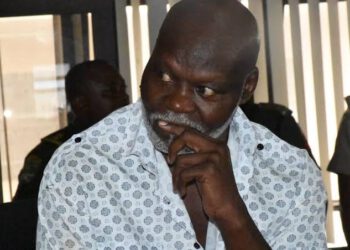A Federal High Court in Lagos has ordered Access Bank Plc and the Economic and Financial Crimes Commission (EFCC) to pay damages for unlawfully freezing a customer’s bank account without obtaining a valid court order.
Justice Ayokunle Faji, in a judgment that has sparked renewed scrutiny over the abuse of regulatory power, declared the freezing of Ganiyu Olawale Toheeb’s bank accounts illegal and awarded N300,000 in damages each against Access Bank and the EFCC.
The suit, filed on May 18, 2023, (FHC/L/CS/333/2023), stemmed from the freezing of Toheeb’s naira and domiciliary accounts (Account Nos: 1456049856 and 1459254408) from February 2 to March 8, 2023, solely based on an EFCC directive—without a court order.
Toheeb asked the court to determine, among other issues, whether the EFCC Act empowers a bank to freeze a customer’s account without judicial authorization, and whether Access Bank acted within the law under the Central Bank of Nigeria Act and the Banks and Other Financial Institutions Act.
He sought declarations that the bank’s actions were unlawful, an order to unfreeze the accounts, N500,000 in damages, and a perpetual injunction restraining further unlawful restrictions.
Access Bank, in its defense, argued it acted on EFCC’s instruction and was within its rights. The EFCC, meanwhile, filed a preliminary objection challenging the court’s jurisdiction and requesting the case be dismissed.
Justice Faji dismissed the EFCC’s objection, stating it lacked merit. He ruled in Toheeb’s favour on all key questions, finding that both Access Bank and the EFCC violated his rights by freezing his accounts for over a month without legal backing.
The judge granted Toheeb’s reliefs, awarded a total of N600,000 in damages, and emphasized that “the plaintiff was entitled to damages, as his funds were withheld for over a month before the EFCC obtained a proper court order.”





















